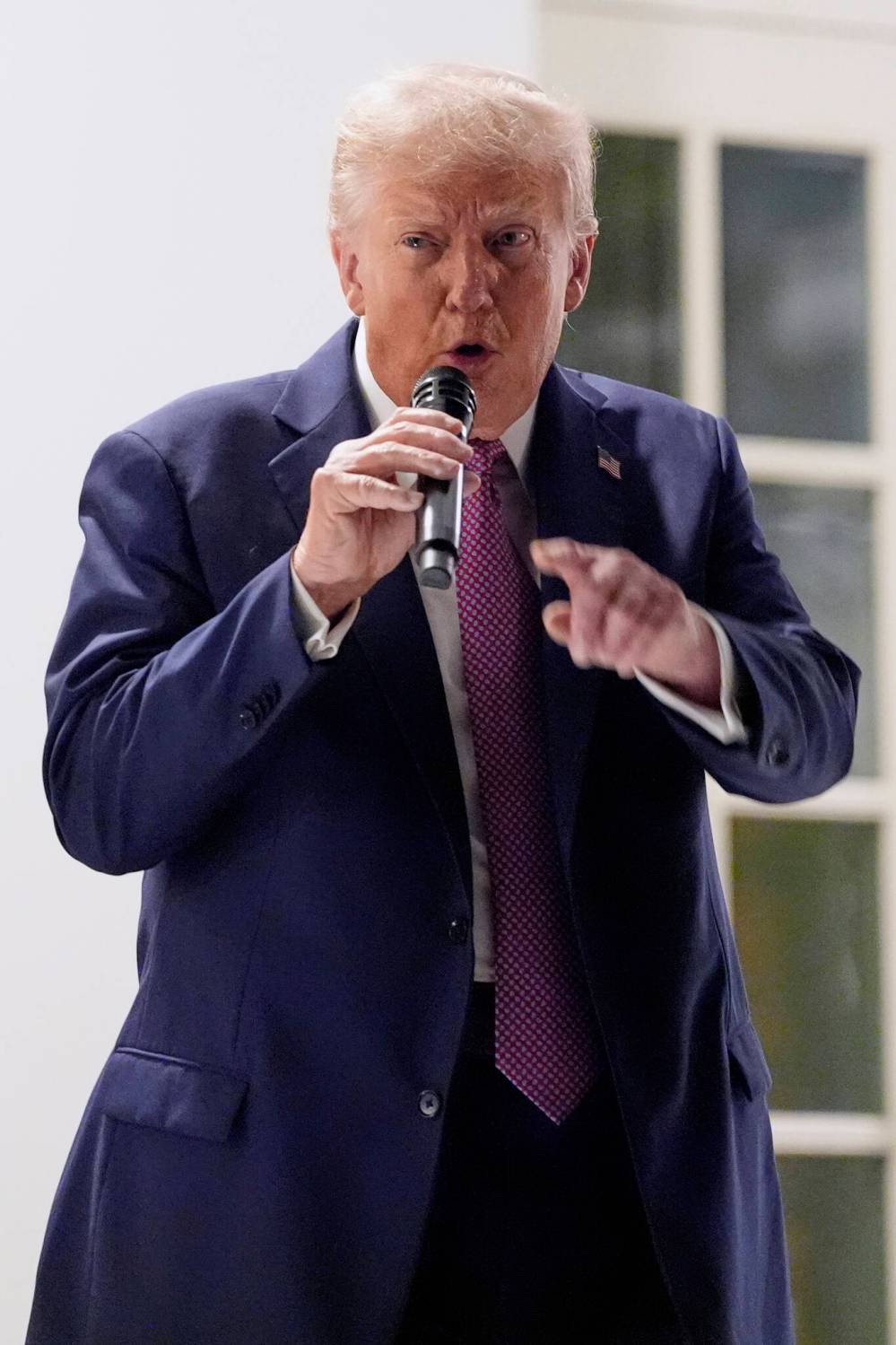America’s slide towards authoritarianism
Advertisement
Read this article for free:
or
Already have an account? Log in here »
To continue reading, please subscribe:
Monthly Digital Subscription
$1 per week for 24 weeks*
- Enjoy unlimited reading on winnipegfreepress.com
- Read the E-Edition, our digital replica newspaper
- Access News Break, our award-winning app
- Play interactive puzzles
*Billed as $4.00 plus GST every four weeks. After 24 weeks, price increases to the regular rate of $19.00 plus GST every four weeks. Offer available to new and qualified returning subscribers only. Cancel any time.
Monthly Digital Subscription
$4.75/week*
- Enjoy unlimited reading on winnipegfreepress.com
- Read the E-Edition, our digital replica newspaper
- Access News Break, our award-winning app
- Play interactive puzzles
*Billed as $19 plus GST every four weeks. Cancel any time.
To continue reading, please subscribe:
Add Winnipeg Free Press access to your Brandon Sun subscription for only
$1 for the first 4 weeks*
*$1 will be added to your next bill. After your 4 weeks access is complete your rate will increase by $0.00 a X percent off the regular rate.
Read unlimited articles for free today:
or
Already have an account? Log in here »
In 2016 or thereabouts, the term “Trump derangement syndrome,” or TDS, entered the popular lexicon and has been used by some on the U.S. political right to describe the left’s deep-rooted negative reaction to, and vociferous criticism of, U.S. President Donald Trump.
The derogatory phrase is intended to delegitimize the comments of those who disagree with Trump’s words and actions by suggesting such negativity is rooted in a “general hysteria” about the president rather than rational objection to his controversial policies and serial provocations.
On occasion, the facetious and decidedly non-clinical phrase has also been co-opted by critics on the left to describe the unwavering nature of Trump supporters’ loyalty in the face of ever-mounting evidence of his character flaws, corruptive behaviour and policy failures.

Alex Brandon / Associated Press files
U.S. President Donald Trump
With the meaning of TDS already muddied in public discourse, perhaps there’s no harm in adding another definition to the mix: as a pointed reference to the deepening madness of the man himself.
Even in the chaotic context his ceaseless assaults on democratic traditions and processes, complete disregard for truth and unwavering commitment to using the levers of political power to harm his enemies while at the same time enriching himself, his family and his cadre of billionaire enablers, it could fairly be suggested Trump last week crossed a new threshold of unhingedness when he took to social media threatening to declare “war” on an American city.
Last Saturday, on his self-aggrandizing Truth Social platform, Trump posted a computer-generated image of himself styled after Robert Duvall’s napalm-loving character in Apocalypse Now, positioned beside a rendering of the Chicago skyline against a flame-red background with silhouetted helicopters flying over the horizon.
The text, based loosely on a famous bit of Duvall’s dialogue, said “I love the smell of deportations in the morning …” followed by the ominous observation that “Chicago (is) about to find out why it’s called the Department of WAR” — a sidelong reference to Trump’s coincidental announcement that he has given a new and more combative name to the Department of Defence (an curious choice by someone who has spent years actively pitching himself as a suitable nominee for a Nobel Peace Prize).
So there it was: a declaration, by the president who has recently sent armed troops into Los Angeles and Washington, D.C., that Chicago — another major city in a Democrat-led constituency — is about to be targeted by forces dispatched by the newly renamed war department.
Despite his rantings to the contrary, this has nothing to do with fighting crime and imposing order on America’s most lawless cities; if that was truly the goal of his strongman agenda, he would be sending troops into such red-state cities as Jackson, Miss., Birmingham, Ala. and St. Louis, Mo., whose per-capita murder rates are double or more than the figures in Chicago and other Trump-targeted locales.
But this is about petty grievances, not public-safety priorities, as well as Trump’s eagerness to consolidate his authoritarian power and make the nation’s military and police forces instruments of his own bidding.
A day after posting the inflammatory image, Trump denied any intention to declare war on Chicago and (of course) labelled the reporter who asked him about it as “fake news.” But the image speaks for itself and, as Illlinois Gov. JB Pritzker noted, “This is not a joke. This is not normal. … The President of the United States is threatening to go to war with an American city.”
One is left recalling another line from Apocalypse Now, this time uttered in the dying breath of Marlon Brando’s character, the deranged Col. Kurtz: “The horror. The horror.”


